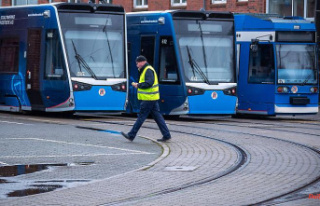Chancellor Scholz sees the country well positioned in terms of energy supply. He expects several billion from skimming off the excess profits. There could be a regulation for this in a few weeks.
Federal Chancellor Olaf Scholz expects high income from skimming off the so-called excess or accidental profits in the electricity sector. "It's about many, many billions of euros," Scholz told the "Frankfurter Allgemeine Zeitung". The implementation of this levy will be tackled quickly. "There are many indications that we will also see decisions here at European level in a very short time," added the SPD politician, alluding to the meeting of EU energy ministers on September 9. The revenue is to be used to finance the electricity price brake for consumers and companies.
The measures decided by the coalition are intended to collect excessive profits from the sharp rise in electricity prices, which are then to be used to reduce the electricity price. Scholz said that a legal check would be carried out to determine whether this skimming could also take place retrospectively. "Above all, it's about the future regulations. Unfortunately, the crisis will be with us for some time."
The Chancellor was once again convinced that sufficient precautions had been taken to secure Germany's energy supply. "We are prepared and will probably be able to get through this winter." Scholz warned that in the future it would have to be the case that you could not only switch to other suppliers for gas, coal and oil at any time, but also for other important raw materials.
At the same time, he made it clear that the phase-out of nuclear energy would remain the same. As is well known, the FDP "looks somewhat differently at nuclear power, that's completely legitimate. Now it's about the energy supply next winter, and the government will act very amicably." He also left no doubt that the energy transition would continue. "Anything else would be negligent - for strategic reasons and for reasons of climate protection."
With a view to the controversial gas price brake, he defended the plans of Economics Minister Robert Habeck. If the main providers of gas imports had passed on the higher costs of gas procurement to the respective suppliers, this would have "led to a dramatic economic crisis in Germany," he said. "That's why the federal government decided on the levy. In this way, the burden is spread across everyone's shoulders and does not have to be borne solely by the customers of the companies that have signed many contracts with Gazprom."












